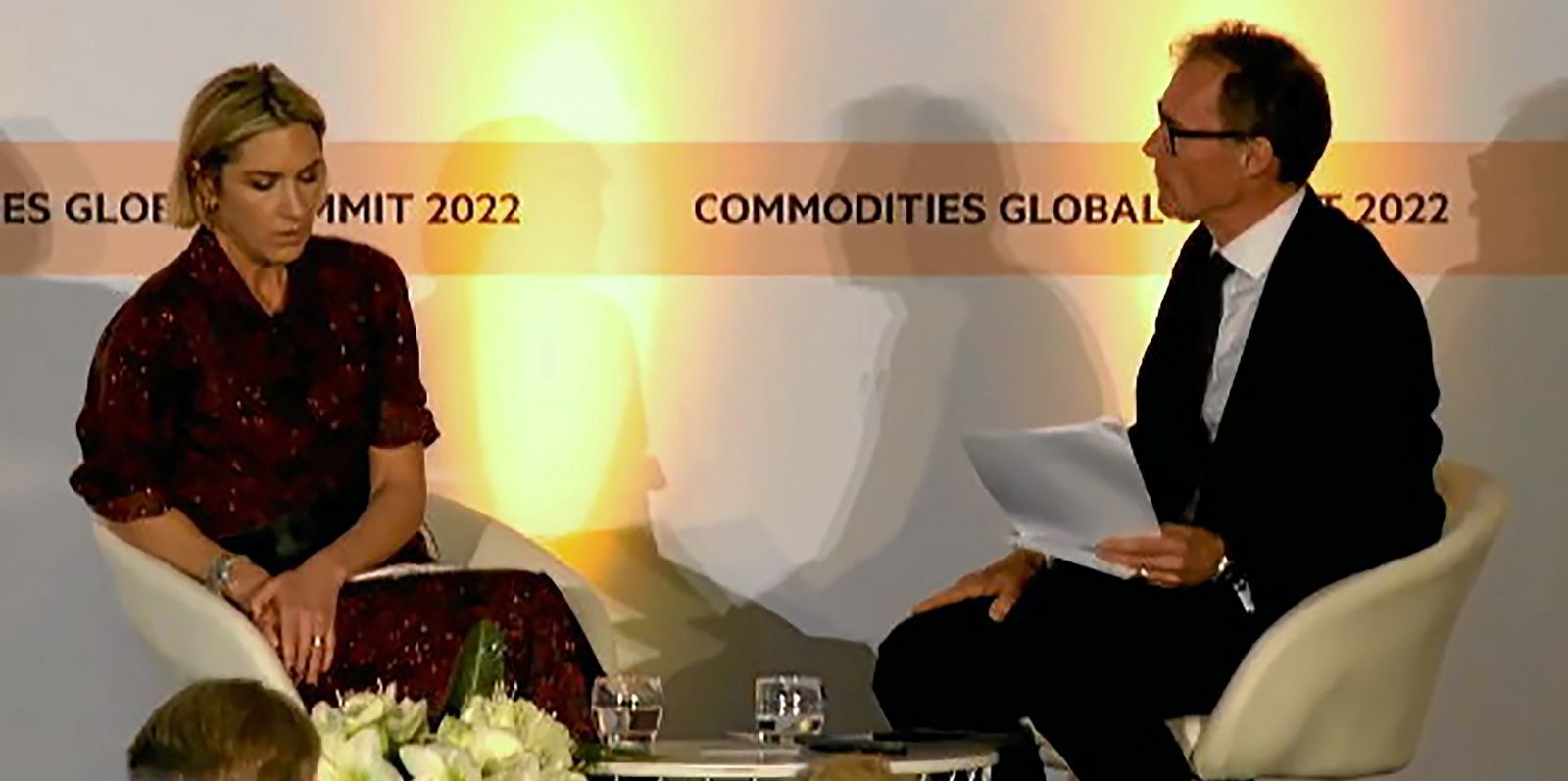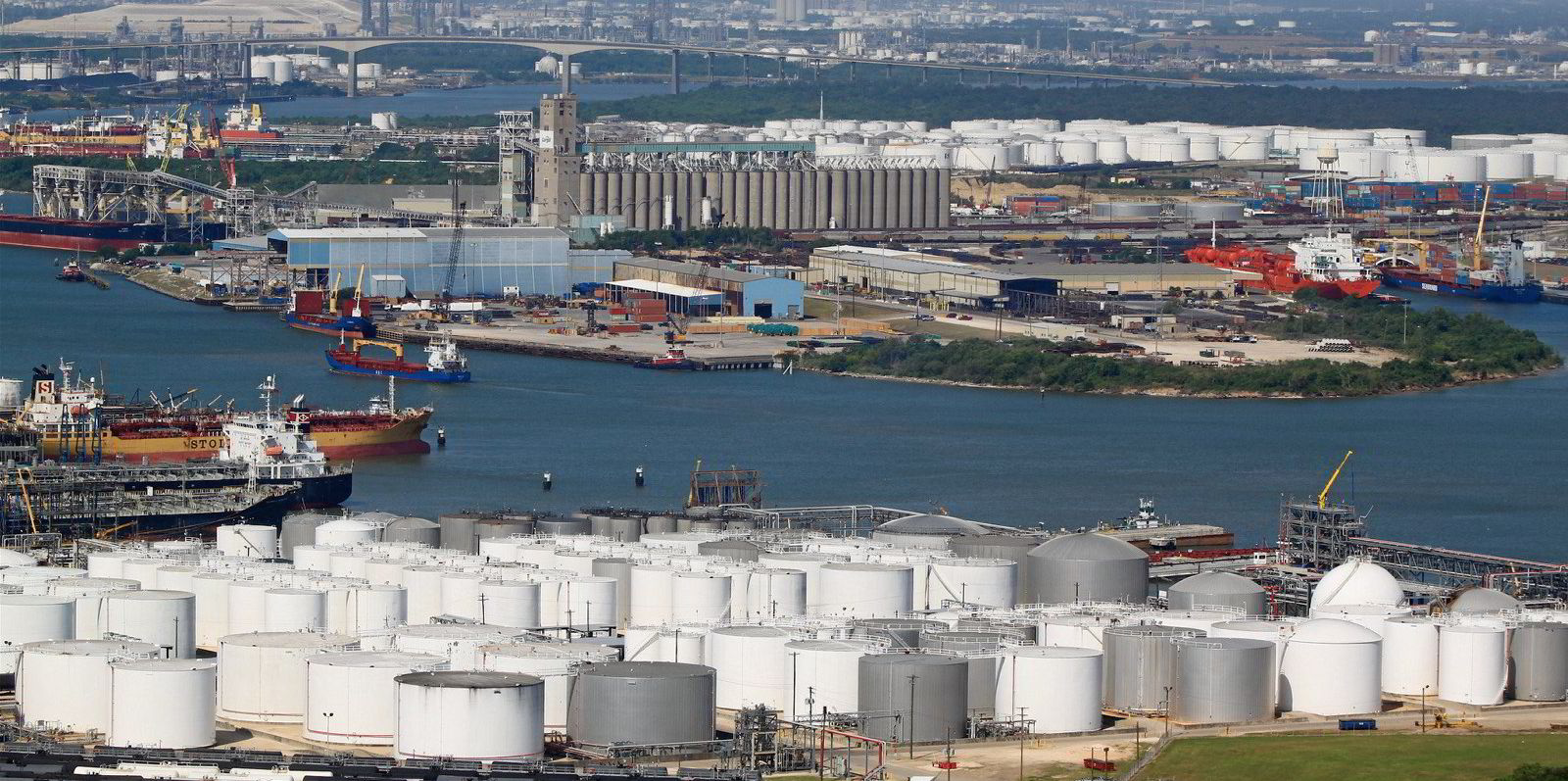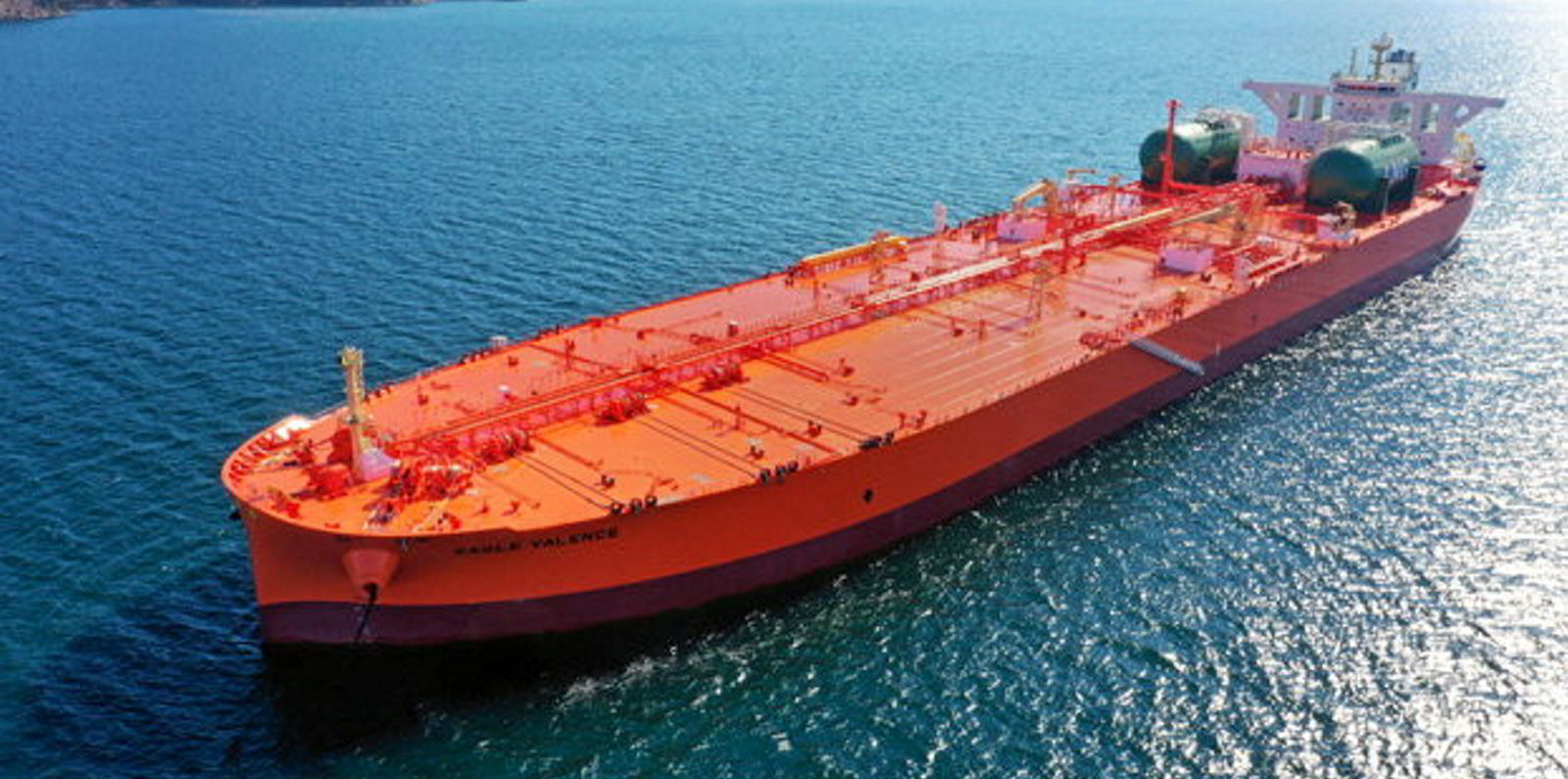Greece’s giant Angelicoussis Group is having nothing to do with Russian oil, chief executive Maria Angelicoussis has revealed.
Speaking to TradeWinds editor-in-chief Julian Bray at the Financial Times’ Global Commodities Summit on Wednesday, the tanker, LNG carrier and bulker boss said: “We won’t be lifting Russian cargoes.”
Asked if this was mainly because of sanctions, or whether self-sanctioning was involved, she replied: “It’s a combination of everything. The sanctions are tricky, there are security issues, so we do not lift Russian oil.”
Angelicoussis said that with high oil prices and a need for replacement barrels, the likelihood is that Iran and possibly Venezuela will come back to market.
It’s a combination ... The sanctions are tricky, there are security issues, so we do not lift Russian oil
— Maria Angelicoussis
Disaster in waiting
She estimated the “ghost fleet” of tankers carrying this sanctioned oil at between 100 and 150 vessels, describing these ships as “badly maintained, out of class, uninsured — an environmental disaster waiting to happen, if I’m honest”.
But she argued: “Should sanctions be lifted, these countries will do their best to increase their exports and this will be done on the above-board fleet.”
Asked how it was still possible for such a sizable fleet to operate outside industry norms in the 2020s, Angelicoussis said: “That’s a decision for governments to make, how much they want to stop that happening.”
And she believes a potential Russian ghost fleet of tankers carrying the country’s oil will have a “different profile” from those transporting Iranian and Venezuelan crude.
Angelicoussis also admitted VLCCs have endured 18 months of terrible rates since the 2020 boom.
“There is a lot less oil in transit and this has disproportionately affected VLCCs,” she told the conference.
“Currently, with the war between Ukraine and Russia, this is having a big effect on the market. The US has banned Russian crude oil and products, the Sovcomflot fleet is facing issues and there is a great hesitancy to ship any Russian oil or products.”
She added that self-sanctioning is taking place, with many owners “too wary” of carrying Russian barrels.
As a result, European refiners are shipping in oil from further away, which is increasing tonne-miles, mainly on the smaller sizes of ships.
“The tanker market has been depressed beyond what’s going on now. We are cautiously optimistic. We see inventories at five-year lows, demand coming back to 100m barrels per day at the end of the year and an increase in US crude exports,” she added.

Angelicoussis also believes “no one will order” new tankers, as prices are high and shipyard slots scarce. “We feel the market will rebound.”
A strong belief in LNG
Turning to LNG, she said: “We believe in LNG in the short, medium and long term, that’s very sure for us.”
She noted that Europe’s “very ambitious” plans to reduce two-thirds of its dependence on Russian gas by the end of the year “will need huge seaborne LNG imports”.
LNG demand growth had been estimated before the war at 4% per year to 2030.
Angelicoussis said there are 600 ships in the operational global LNG carrier fleet and 170 newbuildings on order.
Of these vessels under construction, only 30 are unfixed.
“Five of those are ours. We don’t see this as a large percentage of [the] fleet. There’s a big demand for LNG now,” she added.
Taking an overview of shipping markets, she said a new period of volatility is “unfortunately” here to stay.







